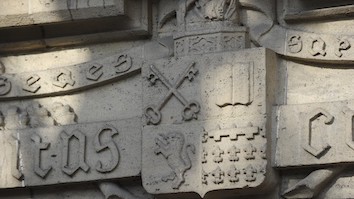

[1] John Swinton, « Disability theology » in Ian Mcfarland, David Fergusson, Karen Kilby, et al. (éd.), The Cambridge Dictionary of Christian Theology, Cambridge, Cambridge University Press, 2011.
[1] Talitha Cooreman-guittin, Armand Léon Van Ommen, « Disability theology: a driving force for change? », International Journal for the Study of the Christian Church (2022/0), Routledge, p. 1‑4.